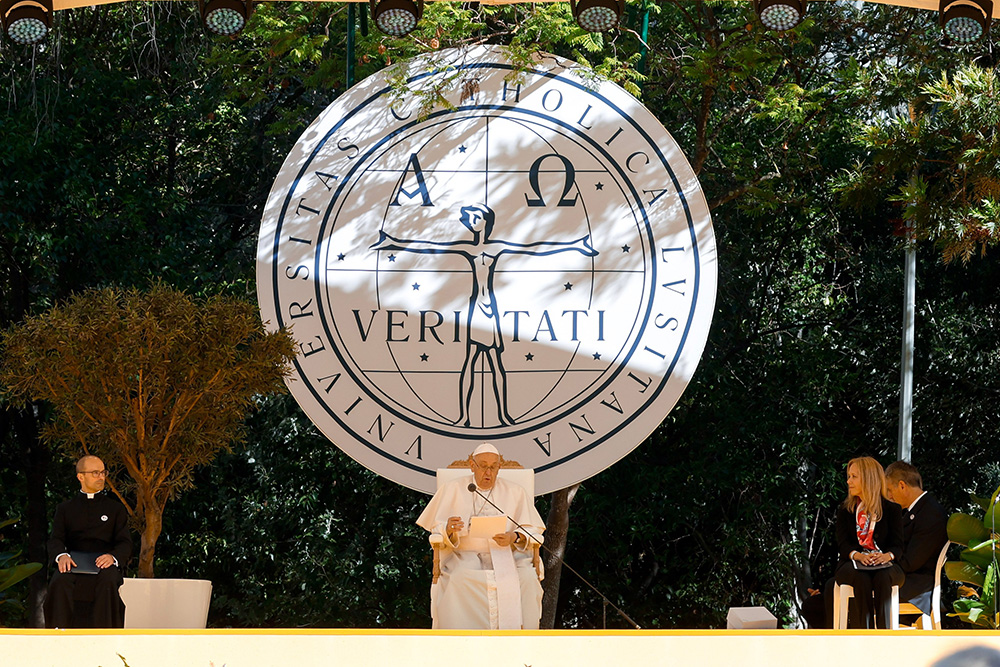~ by Massimo Faggioli, PhD – An opinion piece, appearing in the National Catholic Reporter
The following are excerpts from an address given last week by Massimo Faggioli, PhD, Professor of Theology and Religious Studies at Villanova University, during a conference at the University of San Diego. The text appeared in the National Catholic Report where it was reprinted with permission.
The Catholic Church created and still runs a worldwide network of colleges and universities. In good measure, Catholicism has been identified, from the Middle Ages to today, also with the value of education and of higher education – and in modern times even more for the role the church has played and plays in the history of migration and the need to help members of a religious, social, and ethnic minority become accepted and integrated in their new countries.
From this point of view, the relationship between the Pope and Catholic colleges and universities gives us important indications on the trajectories of Catholicism, as long as we keep in mind that there is one pope in one Vatican and, on the other side, a great diversity between different kinds of Catholic colleges and universities – different in size and endowments, bylaws and statutes, theological orientations, positions within different kinds of relationship between church and state and between Catholic university system and public or state university system.
Francis invites Catholic colleges and universities to be part of a cultural and social process of transformation, “as a sign of a greater responsibility in relation to today’s problems, the needs of the poorest, and care for the environment” and “to generate space for real research, debates that generate alternatives for today’s problems,” as he said to the Catholic University of Portugal in 2017.
Within the overarching theme of an outward-looking university at the service of a fractured world, there are more specific issues that Pope Francis has addressed.

Pope Francis speaks to university students at the Catholic University of Portugal in Lisbon Aug. 3, 2023. (CNS photo/Lola Gomez)
One of them is the role of Catholic colleges and universities in refugee and migrant education, as he mentioned in a September 2022 address.
Francis sees the mission of Catholic colleges and universities as part of the mission of the Church, in a particular way. As he said in his Feb. 25, 2023, speech to the Pontifical Universities in Rome.
Francis invites Catholic colleges and universities to be part of a cultural and social process of transformation, “as a sign of a greater responsibility in relation to today’s problems, the needs of the poorest and care for the environment” and “to generate space for real research, debates that generate alternatives for today’s problems.”
Francis has made clear that the papacy – at least his papacy, except in some isolated cases – has moved away from a confrontational approach with Catholic university leadership and has given more freedom, which is also a consequence of the rise of lay leadership.
What is not clear today is how Catholic colleges and universities still see themselves with an ecclesial role, cooperating in building the Catholic tradition.
Higher education plays a role in Francis’ message to transform the world, but, universities are not the immediate and natural interlocutors of the pope. In this sense, Francis’ papacy has captured with great depth the value of the crossroads in front of which we find ourselves.
Certainly, a deeper reception of Francis’ message is needed in our institutions, at all levels – faculty, administrators, alumni, and donors. This reception would help correct some misperceptions on the ecclesial and cultural challenges facing Catholic higher education in the world of today. But this would also transform in profound and unexpected ways the future of Catholic colleges and universities.
To read the entire account please click here
